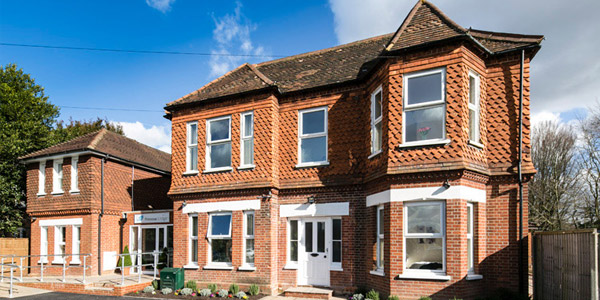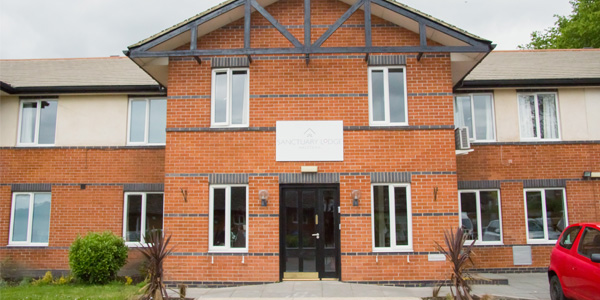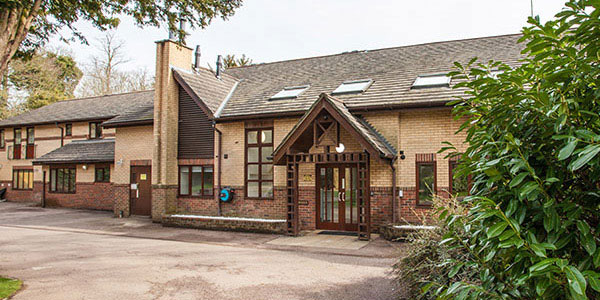Alcohol & Drug Rehab in Bexleyheath
Are you or a loved one seeking addiction rehab services for alcohol and/or drug abuse, dependency or addiction? Addiction Helper provides treatment guides for the London Borough of Bexley, which is a significant borough in the South East London area, England. Our treatment reach extends in and around the London Borough of Bexley and its borders, to the south-east by Sevenoaks and to the east by Dartford. The London Borough of Bexley is within the Thames Gateway area. Bexley is part of Greater London, England, area. Within Bexley are a number of areas including Thamesmead East, Lesnes Abbey, Belvedere, Erith, and Northumberland Heath to the north.
If you require more information before making a decision about Alcohol or Drug detox services in Bexley then call us and we can discuss your addiction treatment needs. Bexley borders the London Borough of Bromley in the south, Greenwich in the west and Havering across the River Thames in the north. Bexley is also bordered to the north by the London Borough of Barking and Dagenham and to the northeast by the unitary authority of Thurrock, Essex.

At Primrose Lodge we genuinely care that our patients make a full recovery …
- Private
- Holistic Treatment
- Onsite gym
- Residential
Featured Rehabs
Sanctuary Lodge is a state of the art detox and rehabilitation facility, se…
Liberty House Clinic is a fully furbished detox and rehabilitation facility…
Banbury Lodge is a private UKAT rehab facility based in Banbury, Oxfordshir…
-
- 12 Step
- Group Setting
- Free
- Outpatient
-
- 12 Step
- Group Setting
- Free
- Outpatient
-
- 12 Step
- Group Setting
- Free
- Outpatient
-
- 12 Step
- Group Setting
- Free
- Outpatient
- Load More
Drug & Alcohol Rehab Services in London
- A
- B
- C
- D
- E
- F
- G
- H
- I
- J
- K
- L
- M
- N
- O
- P
- Q
- R
- S
- T
- U
- V
- W
- X
- Y
- Z
What Is Rehab?
Rehab – more formally entitled “residential rehabilitation” – is broadly considered to be the most effective means of treating addiction, in terms of its ability to provide the greatest chance of long-term recovery. Rehab tackles both the immediate challenge of physical dependency and the longer-term one of psychological addiction, in one holistic combination of medicine, therapy, fitness and dietary regimes, and more; it allows clients to understand the origins of their addiction and therefore to work to ensure they do not make similar mistakes going forward.

Rehab (the term describes both the process of treatment at a dedicated facility and such a facility itself) typically offers two main phases of treatment (treating physical and psychological addictions respectively) within one individualised treatment plan for each addict: a detoxification (“detox”) and withdrawal phase, to cleanse an addict’s system of substances of abuse; and a therapy phase wherein addicts are equipped with psychological defence mechanisms against relapse.
Rehab offers access to highly qualified medical professionals with a great understanding of addiction and its associated challenges, within tranquil, attractive, secure and confidential settings perfectly conducive to physical and mental healing.
How Can I Get Someone into Rehab?
The sooner someone is able to reach out to help, the sooner that help can be forthcoming (whether via rehab or otherwise); the flip side to that coin is that the longer you labour under the burden of addiction, the greater the chance that it will prove fatal (either as a result of an overdose or because of an accident or an attack in which substance abuse is a major factor).
With this in mind, the great strain being placed at present upon NHS services in densely populated areas such as Bexley, and the resulting strict limits on places and distressingly lengthy waiting times, form a very serious problem.
If you’re struggling with an addiction and are unwilling to take such risks, you may wish to explore some of the private options available to you, and we can help provide this information and, as and when necessary, help you prepare in advance of a stay in rehab.
If your concern is not for yourself but for a loved one suffering from an addiction, who has not yet proven able to acknowledge their condition and as such is not ready to engage in treatment, we can assist you in planning an intervention or with other tactics that you can use to get them to confront their addiction and reach out for help.
Either way, with time being of the essence as discussed above, don’t delay any further: call us to speak with one of our addiction specialists about next steps.
Advantages of Private Rehab
As noted above, rehab provides a secure, pleasant, tranquil and confidential setting in which you can focus wholly – and wholeheartedly – upon your recovery, assisted by skilled, experienced and friendly medical professionals, and removed from your daily environment in which you have succumbed to addiction (as well as, of course, from the substance/s to which you have become addicted).
Upon arrival you will be assessed so that the medical team can understand the nature and severity of your addiction, before beginning the detox phase during which you will be supervised for your personal safety (and you may be provided with certain medications to ameliorate the worst effects of any withdrawal symptoms that may manifest).
During the subsequent therapy phase you may engage in a variety of therapy models (in both group and one-to-one settings) to help you understand what led you into addiction in the first place, and to provide you with psychological defence mechanisms against temptation for when you re-enter the outside world. Your personalised treatment plan will also see you provided with bespoke fitness and dietary plans (on the basis of “healthy body, healthy mind”); meanwhile, depending on the specific rehab you are attending, you may also utilise a broad array of other facilities during your stay.
Your recovery will not be complete the moment you step out the door having completed a treatment program in rehab; on the contrary, recovery is a lifelong process with many pitfalls lying in wait. As a result, good rehab providers offer free aftercare (usually for up to a year after leaving rehab) to help you navigate around those pitfalls and reassure you that you still have access to high-quality care during this next crucial phase of your recovery.
What Does Rehab Cost in Bexleyheath?
The cost of private rehab can vary dramatically from one rehab to another (with a host of factors adding complexity such as which optional extras may be requested). As a rough guide, standard costs for rehab in England and Wales range from between £5,500 and £11,000 per month, though the cheapest rehab treatment can start from as little as £834 per week. For more details, call us to speak with one of our advisers.
Bexleyheath NHS Addiction Treatment Options
You may feel for any of a variety of reasons – including concerns about cost or about the difficulties associated with spending a significant period of time away from family obligations, your job, or other commitments – that at this point in time private rehab is not an option you can consider. If this is the case it is important not to give up hope: an assortment of NHS and charity resources can be found in and near Bexley, which may help you manage your addiction or even attempt to overcome it altogether. Contact your GP to make an appointment to discuss which of these resources may be available to you.
Advantages of NHS Treatment
Bearing in mind the aforementioned reluctance of some people to pay for private rehab, one obvious advantage of NHS treatment is that it is free at the point of service delivery. However, there are other advantages too: for one thing, the NHS is active across the UK, whereas some rehabs are a long distance away from Bexley. Another benefit is a generally high quality of service (though that quality does vary from one NHS trust to the next, and as noted above some areas suffer from very high demand and consequently large waiting lists).
Addiction Support Groups
A number of organisations exist across the country to provide assistance to recovering addicts, and some of these operate a support group model. Support groups are groups of individuals who are themselves recovering addicts – some only recently free from addiction, while others may have been clean for many years – and who come together at regular meetings to give and take mutual support: sharing their stories of addiction, giving advice on how to resist relapse, showing solidarity and sympathy when group members are struggling, and providing the simple companionship which can mean so much in times of difficulty and loneliness.
Support group attendees can come from all walks of life, brought together by their shared experience of addiction and recovery; typically, attendance at support groups is free and the only qualification for participation is a commitment to leading a life free of substance abuse.
The most famous support group organisation, and the one on which most others are modelled, is Alcoholics Anonymous (AA) which was founded in 1935 and runs on a 12-step programme of personal and spiritual development, with one of the steps being a recognition that a higher power – such as God – can assist with an alcoholic’s recovery. Narcotics Anonymous (NA), founded in 1953 and based directly upon the AA model, is the second-largest support group organisation worldwide and caters to recovering drug addicts specifically.
In a similar vein, but supporting those recovering from addictions to specific substances, are Cocaine Anonymous (CA), Heroin Anonymous (HA), Marijuana Anonymous (MA) and Crystal Meth Anonymous (CMA), all of which operate 12-step programmes. There are also support groups such as Al-Anon and Nar-Anon assisting the families and friends of addicts which typically hold meetings alongside those for the addicts themselves.
Support groups typically meet weekly, though each local chapter is managed independently and meeting times and venues are subject to change. To find information on meetings in or near Harrow, see the relevant websites:
Alcoholics Anonymous; Narcotics Anonymous; Cocaine Anonymous; Heroin Anonymous; Marijuana Anonymous; Crystal Meth Anonymous.
Types of Counselling

Some people who have completed a treatment programme in rehab want the security of ongoing professional assistance during the next phase of their recovery – even potentially for several years afterwards. On the other hand, some addicts who have not yet been through rehab, but who intend to do so and who wish meanwhile to manage their addictions, desire a similar level of professional health. For these two groups – and indeed for any recovering addicts with especially busy schedules who want the ability to access support as and when they require it – one especially useful model is individual counselling.
Private addiction counsellors work rather like regular psychotherapists, in that they can be seen by private appointment (perhaps on an ongoing – typically weekly – basis, or maybe less regularly) charging a fee per such appointment. Private addiction counsellors can be found right across the UK – with a great many active in Greater London – offering a broad variety of therapy models and approaches to treatment. Usually such counsellors will be available only during set working hours but some may make themselves available in emergencies.
Reaching Bexley in London
Bexley is a south-east London borough, bordering with Bromley, Greenwich, the River Thames, Havering, Barking & Dagenham, Essex and Kent. It is located within the Thames Gateway – a national priority area for urban regeneration.
If you’re travelling to Bexleyheath, you can use one of the many large roads running through the borough including the E Rochester Way/A2 and the A20, which marks the borough’s southern borders. another option is using the many National Rail lines passing through Bexley including the Southeastern’s North Kent line, Dartford line, Bexleyheath line, as well as the Thameslink’s North Kent line.
According to the 2011 census, the locals mostly prefer to use their cars or vans within the Bexley borders, while an equal amount of participants used trains and walking as their main method of transportation. This is not a surprise, considering the many footpaths in the borough, some of which are even meant for long-distance travelling by foot (Thames Path, London Outer Orbital Path).
The Bexley wards are Thamesmead East, Belvedere, Lesnes Abbey, Erith, North End, Northumberland Heath, Colyers, Brampton, St Michael’s, East Wickham in the north and Falconwood & Welling, Danson Park, Christchurch. Barnehurst, Crayford, Blackfen & Lamorbey, Blendon & Penhill, St Mary’s, Sidcup, Longlands, Cray Meadows in the south.
It’s easy to reach Bexley from the nearby London boroughs of Greenwich, Bromley, and Lewisham.
How to Get to Primrose Lodge from Bexley
Primrose Lodge is a unique rehab clinic located in the historic town of Guildford, Surrey. Boasting a private gymnasium, purpose-built treatment rooms and en suite bedrooms, this attractive, spacious building is the perfect getaway for those battling addiction, while Primrose Lodge’s highly experienced staff are on hand 24/7 to ensure patients’ safety and comfort. Integrated treatment programmes designed to address the root causes of addiction are provided in a tranquil and confidential environment in which patients can focus wholly upon their recovery.
To get to Worplesdon from Bexley, head out on the A223, and take the A2018 onto the A2, before joining the M25 clockwise (towards Dover/M23). At junction 10, join the A3 and remain on that road for another 10 kilometres before taking the A3100 onto the A320, and finally join the A322/Worplesdon Road.
For those travelling by train, head into Waterloo from Bexley and change there for national rail services direct to Worplesdon.
Primrose Lodge
Perry Hill
Worplesdon
Guildford
Surrey
GU3 3RY





